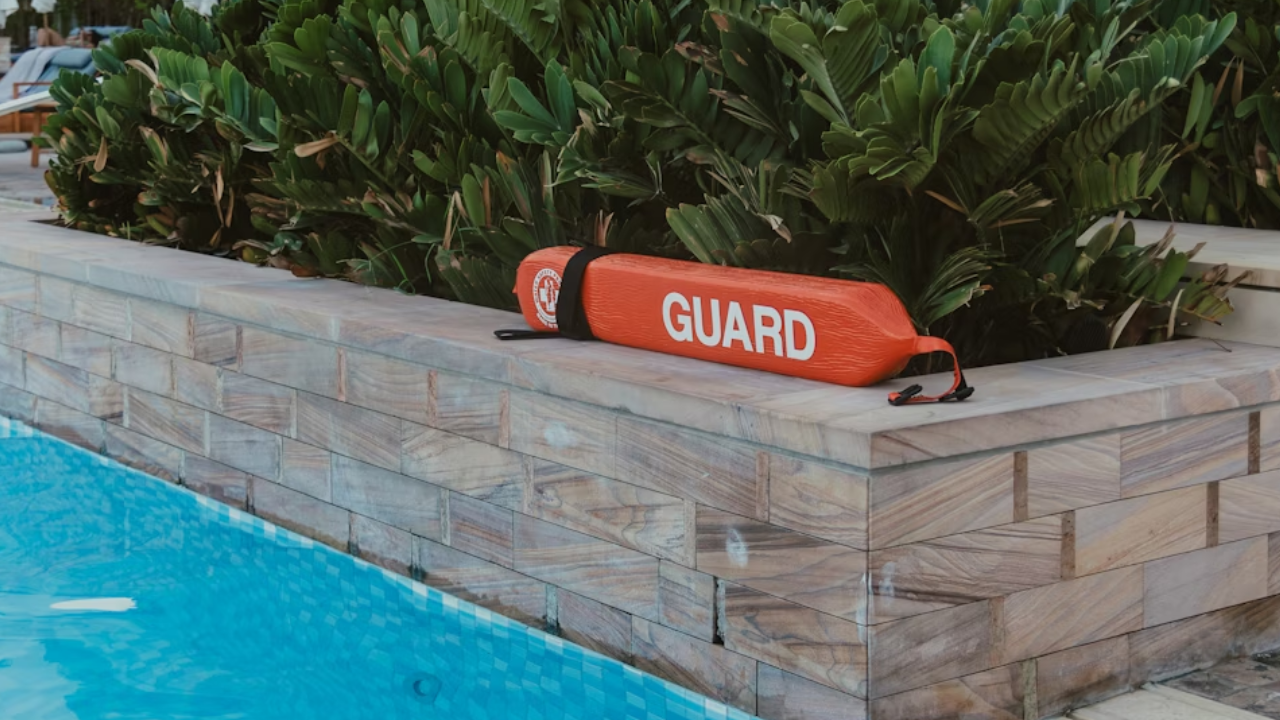Lifeguarding is a noble profession that plays a crucial role in public safety. Whether at the beach, swimming pools, or water parks, lifeguards are responsible for ensuring the well-being of swimmers and responding quickly in case of emergencies. Despite the vital nature of their work, the earnings of lifeguards can vary greatly depending on several factors, such as geographic location, level of experience, employer type, and certifications.
Table of Contents
The Role of a Lifeguard
Before diving into the financial aspects of lifeguarding, it’s essential to understand the responsibilities of a lifeguard. Lifeguards are responsible for monitoring aquatic environments, preventing accidents, enforcing safety rules, and providing emergency care, such as performing CPR or using defibrillators when necessary. Their duties often extend beyond just watching swimmers—they might be tasked with maintaining the cleanliness of the facility, checking pool chemicals, and providing customer service.
These responsibilities demand a high level of physical fitness, strong swimming abilities, and the ability to stay calm under pressure. In many locations, lifeguards must undergo rigorous training programs and obtain certifications, such as those offered by the American Red Cross, the YMCA, or local governing bodies. As such, the profession requires both commitment and a unique skill set.
Average Lifeguard Salary in the United States

In the United States, the salary of lifeguards can vary widely depending on a variety of factors. According to data from the Bureau of Labor Statistics (BLS), the average hourly wage for lifeguards, ski patrol, and other recreational protective service workers was approximately $12.76 as of 2023. This translates to an average annual salary of around $26,550 for full-time workers. However, it is crucial to note that many lifeguards work on a seasonal or part-time basis, which can significantly affect their annual earnings.
Hourly Wages vs. Annual Salaries
One of the most important distinctions to make when discussing lifeguard earnings is the difference between hourly wages and annual salaries. Since lifeguarding is often a seasonal job, many lifeguards do not work year-round. Beaches, outdoor pools, and water parks are typically open only during the warmer months, which means lifeguards may work full-time for part of the year and not at all during the off-season.
For those working year-round, such as lifeguards at indoor pools or in regions with warm climates year-round, earnings can be more stable. However, even in these cases, the hours worked per week can vary, affecting overall annual earnings.
Entry-Level Lifeguards
For entry-level lifeguards, the starting wage is often near minimum wage, although this can vary depending on the state or city. As of 2023, the federal minimum wage in the U.S. is $7.25 per hour, but many states and cities have set higher minimum wages. For example, in California, the minimum wage is $15 per hour, while in New York City, it’s $15 per hour as well. As such, entry-level lifeguards in states with higher minimum wages will likely earn more than their counterparts in states with lower wages.
Entry-level lifeguards working part-time or seasonally may earn anywhere from $10,000 to $20,000 per year, depending on the number of hours they work. However, more experienced lifeguards or those working in regions with higher pay scales can earn more, particularly if they take on additional responsibilities or supervisory roles.
Experienced Lifeguards and Supervisors
As lifeguards gain experience, their earning potential increases. Lifeguards with several years of experience, or those who have advanced certifications (such as water rescue or lifeguard instructor certifications), can command higher wages. In some cases, experienced lifeguards may take on supervisory or managerial roles, such as head lifeguard or aquatics manager.
Head lifeguards or supervisors are responsible for overseeing other lifeguards, coordinating schedules, and ensuring that safety protocols are followed. These roles typically come with higher pay. According to PayScale, head lifeguards earn an average of $15.50 per hour, while some aquatics managers earn between $30,000 and $50,000 per year.
Factors That Influence Lifeguard Salaries

Several factors influence how much lifeguards earn per year. These include geographic location, type of employer, level of experience, certifications, and whether the job is seasonal or year-round.
Geographic Location
Geographic location is one of the most significant factors affecting a lifeguard’s salary. In regions with a higher cost of living, such as California, New York, or Washington D.C., lifeguards typically earn more than those in areas with a lower cost of living. For example, lifeguards in Los Angeles may earn between $16 and $20 per hour, while lifeguards in smaller towns or rural areas may earn closer to $10 per hour.
Lifeguards working in tourist destinations or beach towns, where demand is higher during peak seasons, may also earn more. For example, lifeguards in Miami Beach, Hawaii, or Southern California may earn higher wages due to the high volume of beachgoers and tourists.
Type of Employer
The type of employer also plays a crucial role in determining a lifeguard’s salary. Lifeguards can work in a variety of settings, including:
- Public Beaches: Lifeguards at public beaches are often employed by local or state governments. These positions tend to offer higher pay and better benefits compared to private employers. In some cases, government-employed lifeguards, particularly those in large cities or tourist areas, can earn upwards of $20 per hour.
- Private Pools and Resorts: Lifeguards working at private pools, country clubs, or resorts typically earn less than those employed by public entities. However, they may benefit from tips or additional perks, such as discounted memberships or meals.
- Water Parks: Water parks are another common employer of lifeguards. Pay at water parks varies but tends to be competitive, especially at large or well-known parks. Water park lifeguards may also have access to bonuses or incentives during peak seasons.
- Schools and Universities: Lifeguards working at schools, universities, or other educational institutions often have more stable, year-round employment. While the pay may be modest, these positions may offer benefits such as health insurance or retirement plans.
Certifications and Specializations
Certifications are an essential component of a lifeguard’s earning potential. Lifeguards with advanced certifications, such as CPR, AED (Automated External Defibrillator) certification, or lifeguard instructor certification, often earn higher wages. Additionally, specialized certifications, such as SCUBA (Self-Contained Underwater Breathing Apparatus) diving certification or swift water rescue, can open doors to higher-paying jobs in niche markets.
For example, lifeguards working in aquatic environments that require SCUBA certification, such as those employed by aquariums or dive schools, can earn significantly more than their pool or beach counterparts. Similarly, lifeguards with certification in swift water rescue or floodwater rescue can find employment in emergency services or specialized search and rescue teams, which often pay more.
Seasonal vs. Year-Round Employment
Another critical factor that affects a lifeguard’s annual earnings is whether the job is seasonal or year-round. Lifeguards working at outdoor pools, beaches, or water parks often work only during the summer months or peak tourist seasons. As a result, their annual earnings may be lower than those of lifeguards working year-round at indoor pools or facilities with consistent demand.
For seasonal lifeguards, wages are typically higher during peak months, and some employers offer bonuses or higher pay rates to attract workers during busy periods. However, seasonal workers often face periods of unemployment or underemployment during the off-season, which can reduce their overall annual earnings.
Lifeguard Salaries Around the World

While much of the data in this article focuses on lifeguards in the United States, it’s worth noting that lifeguard salaries vary widely across the globe. In countries with a high cost of living or a strong emphasis on water safety, lifeguards may earn more than in countries where lifeguarding is seen as a part-time or entry-level job.
United Kingdom
In the United Kingdom, lifeguards typically earn between £9 and £12 per hour, depending on experience and location. This translates to an annual salary of between £18,000 and £24,000 for full-time lifeguards. However, many lifeguards in the UK work part-time or seasonally, which can lower their overall earnings.
Australia
Australia has a strong beach culture, and lifeguards, particularly those working on public beaches, are often well-compensated. In Australia, lifeguards can earn between AUD $25 and $35 per hour, with annual salaries ranging from AUD $45,000 to $60,000 for full-time workers. Lifeguards working at famous beaches, such as Bondi Beach in Sydney, may earn even more due to the high demand and large number of visitors.
Canada
In Canada, lifeguard wages are similar to those in the United States. Lifeguards typically earn between CAD $12 and $18 per hour, with full-time annual salaries ranging from CAD $25,000 to $35,000. As with the U.S., Canadian lifeguards working in cities or tourist areas tend to earn more than those in rural or less populated regions.
Other Countries
Lifeguard salaries in other countries vary widely. In some European countries, such as France or Spain, lifeguards can earn a modest wage of €10 to €15 per hour, while in developing countries, lifeguards may earn significantly less. However, in all countries, factors such as experience, certifications, and location play a role in determining salary levels.
